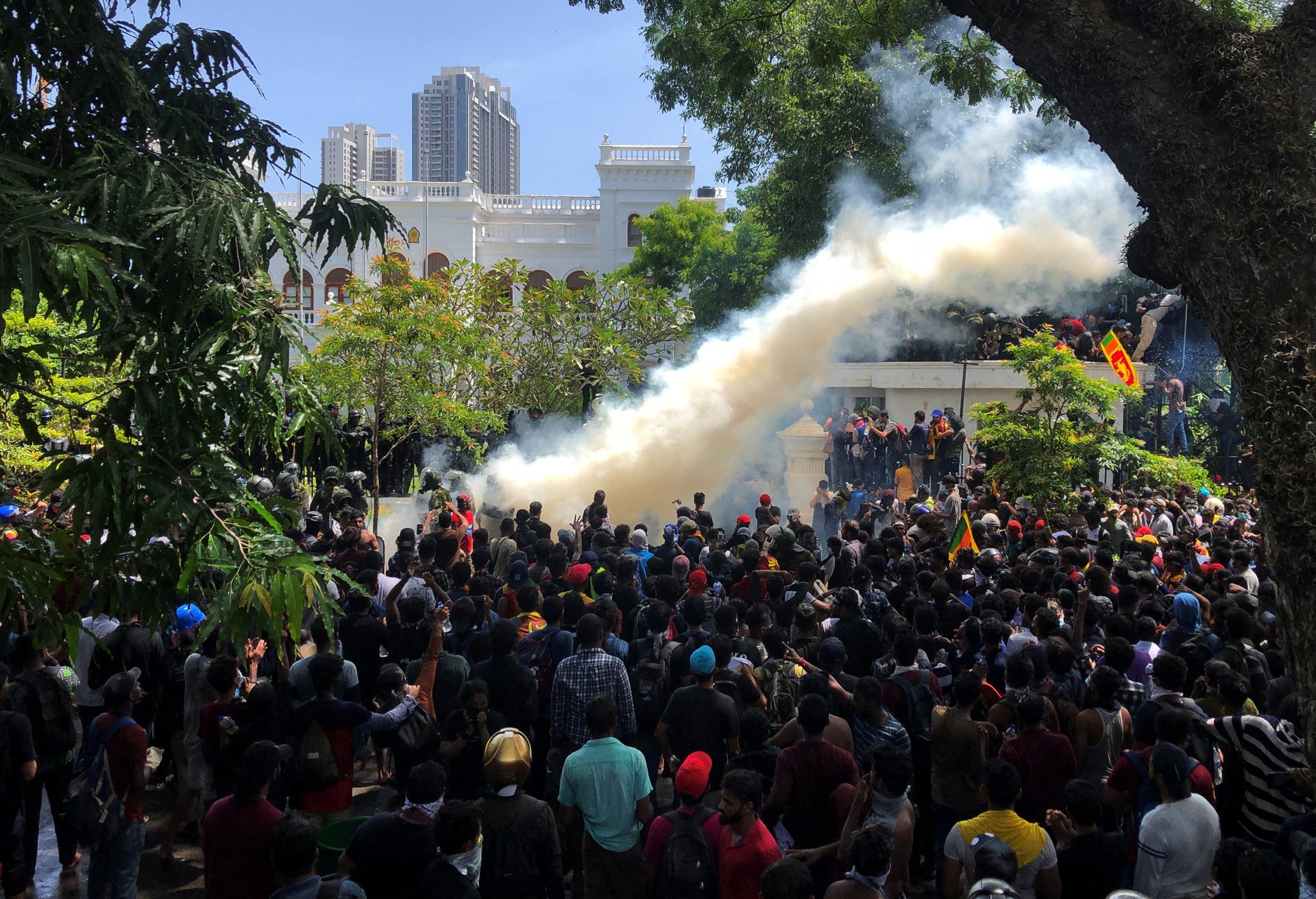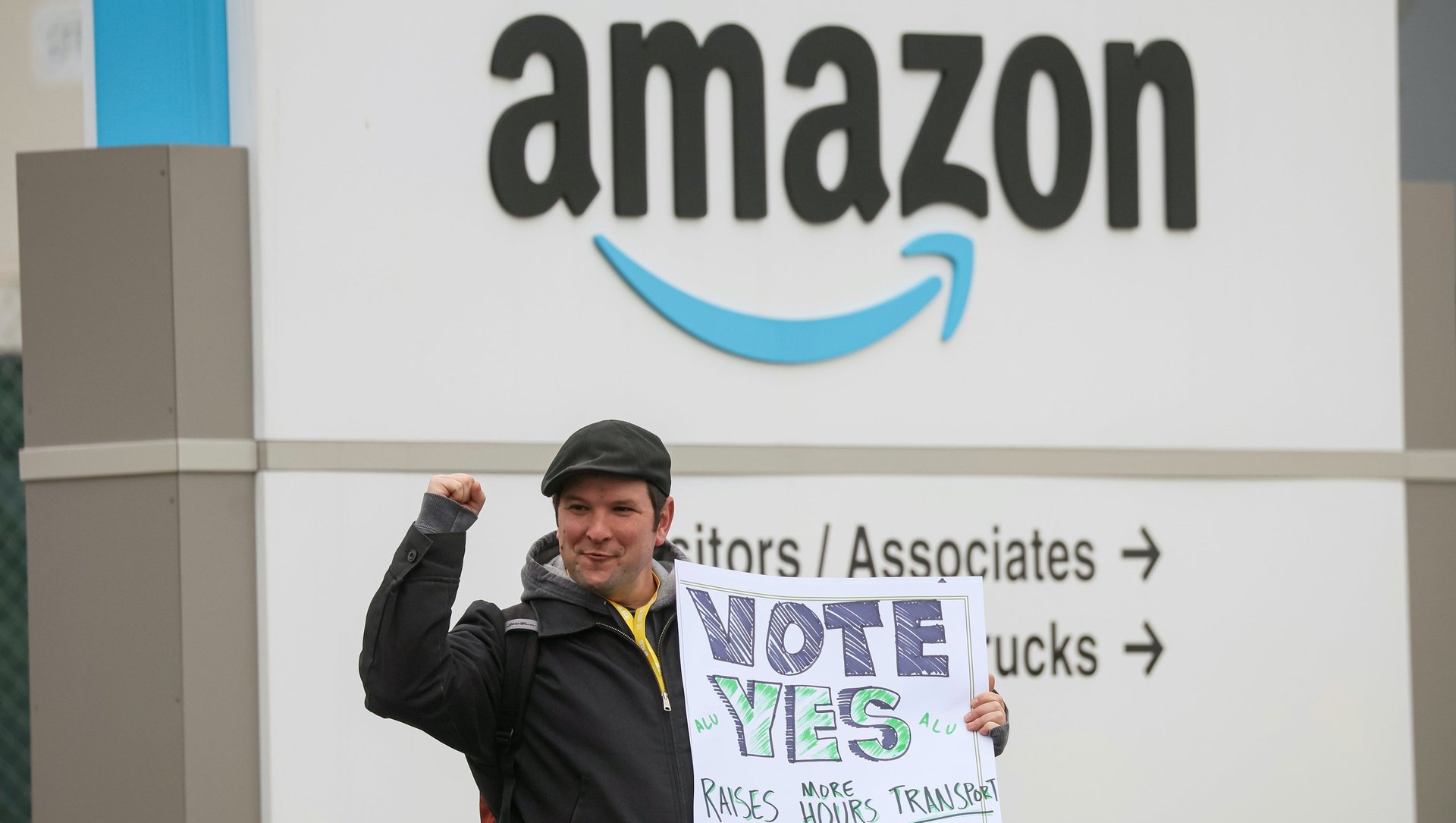🌍 Sri Lankan military called to restore order
Good morning, Quartz readers!


Good morning, Quartz readers!
Here’s what you need to know
Sri Lanka’s prime minister told the military to restore order. The directive came directly after protesters stormed PM Ranil Wickremesinghe’s office, and one day after the country’s president fled the country.
Russia and Ukraine met to discuss grain exports. Turkish and UN representatives were also among the parties seeking agreement on a plan to export millions of tons of grain currently trapped in Ukraine.
A Japanese court ruled that ex-TEPCO executives were responsible for the 2011 Fukushima nuclear disaster. Four executives have been ordered to pay $97 billion to 48 shareholders to settle a civil suit.
Billionaire Lim Wee Chai’s wealth tumbled 89%. His company, Top Glove, which makes one out of every four rubber gloves in the world, reported a 99% drop in profits last month.
Apple’s main iPhone assembler helped bail out China’s top chipmaker. The arm of Taiwan’s Foxconn Technology Group invested $788 million in Shanghai-based Tsinghua Unigroup’s $9 billion rescue plan.
Spain will temporarily tax power companies and banks. The extra $7.02 billion will further the government’s efforts to ease the cost of living by funding free intercity train transit starting Sept. 1.
What to watch for
When TSMC, the world’s largest chip manufacturer, reports earnings later today, it will offer a glimpse into the turbulent state of semiconductor supply chains. After more than a year of consistent chip shortages, some semiconductor manufacturers are starting to warn of an oversupply in certain categories of chips, particularly memory chips for laptops and smartphones.
Meanwhile, automakers are complaining they lack other varieties of chips, and can’t keep up with customer demand.
Today’s call with TSMC, which controls more than half of global semiconductor manufacturing, will give industry watchers strong clues as to whether the chip shortage will drag on for several more months or if the industry is poised to whipsaw from severe shortages to overproduction.
Amazon workers are forging a new kind of labor organizing

An Amazon warehouse outside Albany, New York, is looking to organize with the independent Amazon Labor Union (ALU), highlighting a major shift toward independent worker-led unions, rather than large, national organizations which have historically dominated union membership in the US.
Previous Amazon union campaigns have struggled. The company’s huge size and high turnover makes it harder to build solidarity, and Amazon has also allegedly employed a range of union-busting tactics.
Young, independent unions like the ALU lack the resources, experience, and reach of national unions. But they have some big advantages, too. For example, a company can’t exactly smear grassroots unions as bureaucracy-laden third parties, a common refrain aimed at national organizations to try and undermine labor organizing efforts.
Kenya’s digital literacy failure is a black market success
Kenyans have taken to social media, venting their anger over reports that government tablets meant for grade one pupils have been spotted for sale on Uganda’s black market.
The government’s digital literacy program cost taxpayers millions, and no one seems to be investigating those who sold government property. Faustine Ngila looks into how a failed program crushed the dreams of millions of Kenyan students.
✦ Becoming a Quartz member helps us publish stories like this one, and keep them free for all readers. Support our journalism—take 40% off when you sign up today!
And to keep up with the latest Quartz Africa happenings, sign up for the Quartz Africa Weekly. It’ll hit your inbox, for free, once a week. Subscribe instantly below!
Quartz’s most popular
Surprising discoveries
Hidden sketches were found in an Amedeo Modigliani painting. Israeli curators found the sketches in Nude with a Hat which is already unusual as it’s displayed upside down.
Seventeen dinosaur teeth were discovered in Queensland, Australia. The “exceptionally rare” fossils come from a herbivorous sauropod.
Bourbon is running dry in New Zealand. Chicken nuggets and craft beer are also getting scarce, no thanks to supply chain delays.
The emerald ash borer is annihilating forests. While prettily named, the beetle has been dubbed, “the most destructive and costliest forest pest ever to invade North America.”
Netflix’s Squid Game became the first non-English language series to receive a best drama nomination at the Emmys. And in total, it received 14 Emmy nominations.
Our best wishes for a productive day. Send any news, comments, hidden drawings, and Squid Game tracksuits to [email protected]. Reader support makes Quartz available to all—become a member. Today’s Daily Brief was brought to you by Nicolás Rivero, Sarah Todd, Sofia Lotto Persio, Julia Malleck, and Susan Howson.